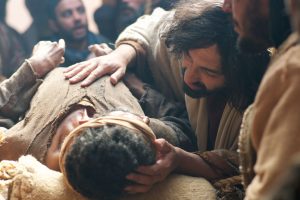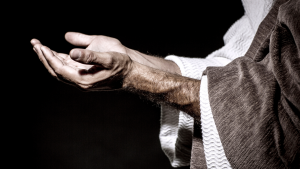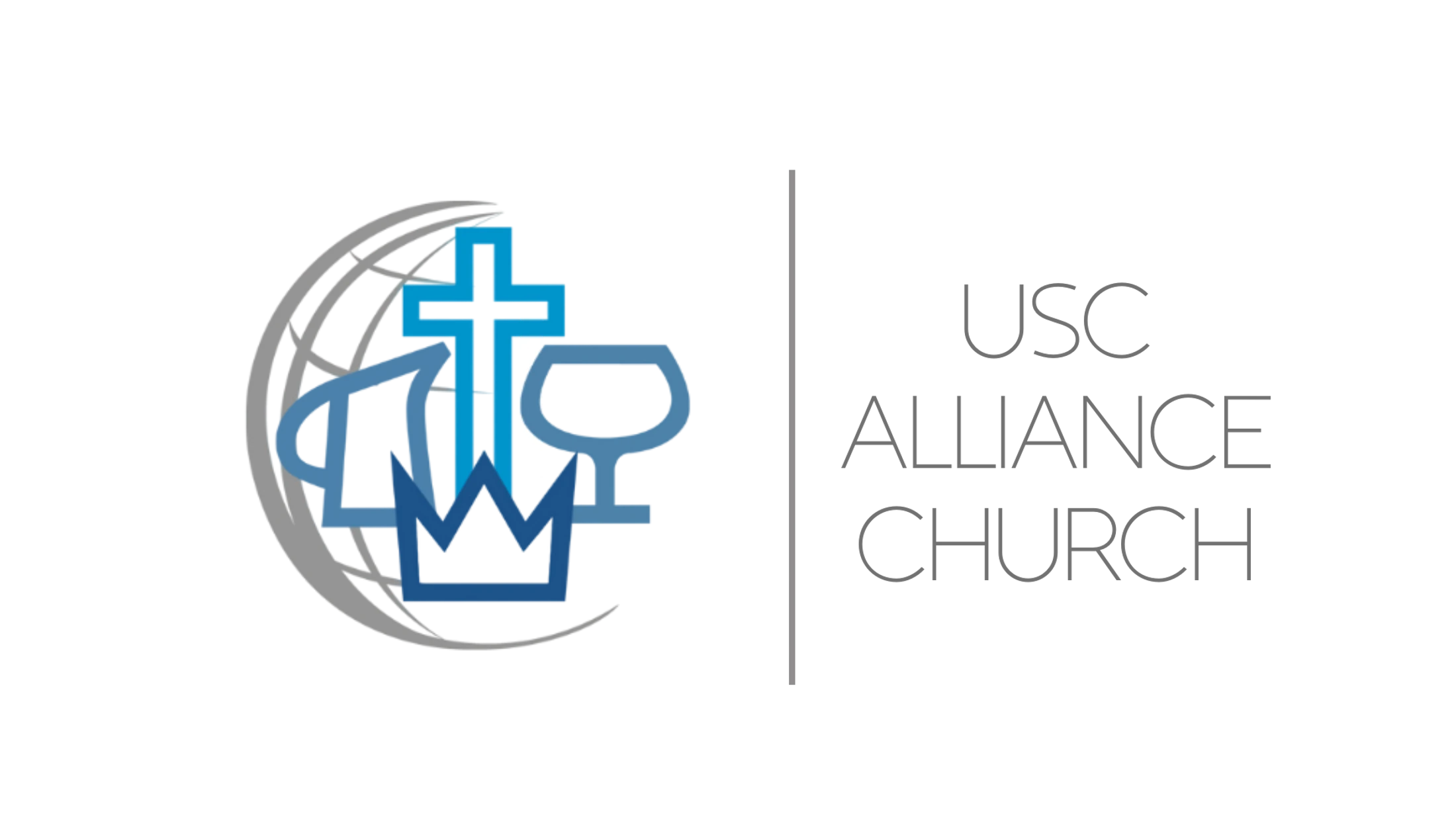Jesus Unfiltered: A Day in the Life of Jesus (Mark 1:29-39)
Published October 20, 2021

Have you heard of "The Shultz Hour"?
Apparently, when George Shultz was Secretary of State in the 1980s, he liked to carve out one hour each week for quiet reflection. He’d sit down in his office with paper and pen, close the door and tell his secretary to interrupt him only if one of two people called:
his wife or the president.
He claimed that this hour of solitude was the only way he could rise above the moment-by-moment tactical issues to focus on the strategic aspects of his job.
To one degree or another, we all need to take a regular Shultz Hour. Our fast-paced world demands it.
We have computers in our pockets and purses. We place them next to us as we sleep. They're always there, with a new sports score to note, a new status update to be read, a new picture to be taken, an urgent text or email to address.
Our culture has long venerated freneticism. We even humble-brag about how busy we are. Like the people who send work emails on their wedding day or from the hospital room where their child is being born—and are proud of it.
We all need a regular "Shultz Hour."1
Even Jesus needed a Shultz Hour. He wasn’t tethered to a smartphone, but his life was every bit as busy as ours. Open your Bible to Mark 1:29-39 and follow along as we witness a (busy) day in the life of Jesus.
If you’ve just joined us on our journey, you may not know that one of Mark’s favorite terms is immediately. Everything happens in rapid succession.
Today’s passage is a perfect example. A very dramatic synagogue service (shocking even) has come to a close. Everyone is buzzing with excitement as people exit the synagogue and head home for Sabbath dinner. As soon as the service ends, Mark takes us straight to Simon’s house for dinner.
SABBATH DINNER AT SIMON’S (29-31)
29 – As soon as [immediately in some translations] they left the synagogue, they went with James and John to the home of Simon and Andrew.
Simon lives only a stone’s throw from the synagogue, so he shows radical hospitality by inviting the gang over. Notice how the four fishermen are sticking with Jesus, going where he goes, being trained by observing their new teacher. That was his primary training strategy, spending time together.
Here Mark gives us our first glimpse of Jesus in a run-of-the-mill everyday situation in someone’s home. The kind of daily stuff life is made of. No major crisis going on. No demons screaming. No huge crowds crushing against him (yet). Just a normal Sabbath dinner at a fishermen’s house. But there was one small problem.
30 – Simon’s mother-in-law was in bed with a fever, and they told Jesus about her.

So now we know Simon was married, probably to a local girl. Not sure if he had any kids, but he did have a wife, and on this particular Sabbath, a sick mother-in-law. Maybe that’s why Simon invited Jesus over, to heal her. I wonder if the meal was delayed because she was sick. Maybe that’s how it came up. We don’t really know. In any event, they ended up mentioning her illness to Jesus.
It’s always a good idea to tell Jesus about your problems, big or small.
Obviously, this was more than a mild cold or allergy. She was in bed in the middle of the day. Luke was a physician. In his account, he described her as suffering from a high fever (Luke 4:38). He’s probably right. The term fever here literally means “to be on fire”. At that time a fever was considered an illness, rather than a symptom of an illness. Whether it’s you or someone you love, high fevers are never fun, are they? They drain all your energy & fill you with aches & pains. We don’t know how long she felt this way, but I’m sure she was desperate for relief. Let’s see how Jesus handles this.
31a – So he went to her, took her hand and helped her up.
Don’t you love that? He went to her.
I’m so glad he comes and meets us right where we are in our weakness and need, aren’t you?
He then did something unusual; he touched her. He could have healed her with only a word. Instead, he took her by the hand and helped her up.
This is something we often see Jesus doing, showing compassion by touching the untouchable (e.g. Mark 1:41) Filled with compassion, Jesus reached out his hand and touched the man).
There’s an old song by the Gaithers called He Touched me. You may remember it.
He touched me, oh, He touched me; and oh, the joy that floods my soul; something happened, and now I know; He touched me, and made me whole.
If she’d known it then, Simon’s mother-in-law could’ve sung that song. Jesus’ touched her and made her whole.
31b – The fever left her and she began to wait on them.
The language here doesn’t quite capture what happened. It’d be more accurate to say the fever forsook her. Jesus demonstrated authority over her fever much like he did over the demon in the synagogue that morning. This doesn’t mean all sickness or fevers are the result of supernatural forces (as we’ll see in just a minute). But it does demonstrate Jesus’ authority over the entire spiritual and physical world.
Don’t miss how his touch immediately made her whole. No period of convalescence. No recovery period. She immediately rose up and set out to serve them, which shows us what kind of woman she was. She had the gift of hospitality. This is a picture of what Jesus can do – restore broken people to their original purpose.
It’s only lunchtime, but it’s already been a full day for Jesus. They certainly had a lot to talk about over dinner. And they weren’t the only ones talking. Word of what happened in the synagogue spread like wildfire throughout the town, and I’m sure word got out about Simon’s mother-in-law as well. As a result, by nightfall, there was a stampede at Simon’s door. So much for enjoying a relaxing evening after a busy day.
AFTER SUNSET (32-24)
32-33 – That evening after sunset the people brought to Jesus all the sick and demon-possessed. The whole town gathered at the door,
The reason they waited until dark was probably to avoid breaking the Sabbath. Jewish law prohibited people from working or carrying anything on the Sabbath, which according to the Jews, ended at sunset (around 6:00pm).
Once the sun dipped behind the horizon, it was like a dam burst as the whole town flooded the streets, beating a path to Simon’s door. As people arrived, Simon’s house became a hospital.
34 – …and Jesus healed many who had various diseases. He also drove out many demons, but he would not let the demons speak because they knew who he was.

It must’ve been amazing.
You can almost hear the shouts of joy and wonder as Jesus mended broken bones, removed tumors, restored sight, and did whatever else was needed to make people whole again.
What a beautiful picture of Jesus’ compassion and healing power.
But it’s also a sad picture of the plight of desperate people. Imagine the frantic rush at sunset. All these broken, sick, demonized people racing down the narrow streets, stumbling and limping along, being carried and carted by their friends and loved ones.
I remember bow hunting in South Dakota years ago at the end of bitterly cold and snowy December. I couldn’t believe how sick and starved so many of the deer looked. Dozens of limping, gaunt, dying deer streamed by me. I thought of that pathetic scene when I read this account.
Imagine what was going through their minds as they made their way in the dark to Simon’s door. Could it be true? Could this new teacher set me free from this sickness, this bondage?
Their religious leaders certainly couldn’t. They had nothing to offer them except rules and regulations – don’t lift this or carry that. But they couldn’t do a thing to lift the burdens of the people, to heal or restore them in body or soul. All they could do was condemn them for “working” on the Sabbath.
By contrast, Jesus could bring liberation and healing!
It’s important to note the distinction Mark makes between sickness and demonization. Jesus distinguished between the two and treated them differently.
Those with various diseases he healed, and those with demons he delivered.
As with the demon in the synagogue that morning, Jesus would not let the demons speak. Their identification of him would only confuse people. After all, demons are liars and deceivers. He didn’t want people listening to anything they had to say.
Mark doesn’t tell us how long this went on, but I’d guess it was long past midnight before the last lamp went out and they went to bed. I know how exhausted I am on Sunday nights, so I can’t imagine how tired Jesus was when his head hit the pillow late that night. Surely, he slept in and took Sunday off.
MORNING SOLITUDE (35-38)
35 – Very early in the morning, while it was still dark, Jesus got up, left the house and went off to a solitary place, where he prayed.

Actually, he didn’t get much sleep at all because he got up before dawn. Mark again uses redundancy (see verse 32) to describe the time of day; very early… while it was still dark. Before anyone else stirred, Jesus got up and left the house in Capernaum for a solitary place – the same expression Mark used earlier to describe the desert wilderness where John preached (1:3, 4) and where Jesus faced temptation (1:12).
The question is, why’d he get up so early? And why’d he head off to be alone? He needed a Shultz Hour.
He needed to pray and spend time in deliberate communion with the Father.
This shows us that Jesus’ ministry had external and internal dimensions. It was both an inward and an outward work. He couldn’t extend himself outward in compassion without spending time with the source of his mission and purpose – the Father. Likewise, his oneness with the Father propelled him outward in mission. Jesus’ prayer life is more than merely a model for his disciples. It was a vital part of his life and ministry, of his obedience and submission to the Father.
He humbled himself in his incarnation, becoming submissive to the plan of the Father and dependent on the power of the Spirit. That dependence and submission were demonstrated by his devotion to prayer and communion with his Father. He knew the wilderness was the only place he could find uninterrupted time in prayer. At least he thought it would be uninterrupted. When the others woke up and found he was gone, however, his solitude was shattered.
36-27 – Simon and his companions went to look for him, and when they found him, they exclaimed, ‘Everyone is looking for you!’
Think about it. People are waking up, crowds are coming back for more miracles. The disciples wanted to help them, to make them happy and expand Jesus’ popularity. It simply wouldn’t do for Jesus to be AWOL when he’s needed. So they put together a search party and go after him.
The language Mark used is quite strong. They didn’t just go out looking for him like you’d look for lost golf balls. They literally hunted him down. And it wasn’t just Simon and the other fishermen. Everyone was out looking for him. But that’s a good thing, right – people seeking Jesus?
It all depends on why you’re seeking him. In this case, they didn’t exactly have the best motives. It wasn’t his teaching they were after, it wasn’t even really him they wanted; they were looking for what he could do for them. They wanted more of what they saw the day before. They were eager to marvel at his authority and benefit from his healings, but not to respond appropriately to his Kingdom message.
You may have noticed the subtle rebuke in Simon’s response when he finally found Jesus. It’s almost like he’s scolding him for skipping town when there was work to do.
Everyone is looking for you! In other words, why are you out here praying by yourself when there are so many people to be healed in Capernaum?
It’s clear they were looking for him in order to control him and determine for him what he should be doing. The disciples wanted to accommodate his surging popularity, to capitalize on his notoriety as a miracle worker. That kind of seeking is not exactly a virtue.
It’s interesting that Simon is the only one named here. From the get-go Simon seems to have a knack for getting himself sideways in the road with Jesus, something he never quite seems to outgrow (Matthew 16:22). Jesus has to set him (them) straight. He didn’t come to cater to clamoring crowds. He didn’t show up simply to bring physical healing. He came to preach the Kingdom, not just in Capernaum, but everywhere.
38 – Jesus replied, ‘Let us go somewhere else – to the nearby villages – so I can preach there also. That is why I have come.
Jesus knew his purpose and calling. He didn’t chart his course by the whims of popularity polls. He had compassion on people; that’s why he healed them. And his miracles validated his message. But ultimately, miracles couldn’t save anyone, and that’s what he came to do – to seek and save the lost (Luke 19:10).
He came to seek out lost sinners and call them to repentance through the preaching of the good news (1:14, 15).
Although his disciples were slow to grasp it, Jesus never lost sight of his mission. Despite pressure to change, he continually kept the main thing the main thing. In this case, the main thing took him away from Capernaum for a time so he could proclaim the gospel elsewhere.
39 – So he traveled throughout Galilee, preaching in their synagogues and driving out demons.
After going into so much detail describing Jesus’ first day of ministry, in one sentence Mark here summarizes weeks if not months of Jesus’ activity doing the same kinds of things he did in Capernaum – preaching in synagogues throughout the region and driving out demons.
It was quite a first day on the job, a very full day – teaching with authority, demonstrating his authority over evil spirits and human sickness, showing compassion to masses of broken people, and spending a Shultz Hour alone in prayer.
So, what can we learn from this page in Jesus’ diary? There’s so much here. Let me point out three practical applications.
Takeaway #1 -- When you bring Jesus home, the world will be knocking on your door.
We’ve been talking about hospitality a lot lately. Our vision is to make each home the locus of ministry. One thing the pandemic taught us is that the church is not a building and that we actually don’t even need the building for ministry. We knew that before, we just didn’t really believe it. Or at least we didn’t live it.
The truth is, in today’s world, the most effective path for bringing people to Jesus is through your front door.
When you encounter the risen Christ and live out your faith in authenticity and transparency, when you move past “Sunday religion” and bring Jesus home with you, when you bring him into your neighborhood and friendship circles, people will be knocking on your door to find out who Jesus is.
So love people in Christ’s name. Share Christ’s love with your neighbors. Show them hospitality. Love them unconditionally. But don’t forget why you do that – so that ultimately they will respond to the gospel and be saved.
Takeaway #2-- If Jesus found focus and strength through prayer, wouldn’t we want to do the same?
Years ago I read a book titled, “Too Busy to Pray.” If anyone could have rationalized that he was too busy to pray, it would have been Jesus. The demands were relentless and exhausting. But that’s precisely why he needed to get alone with the Father. Prayer was his first priority; it was the first work of the new day.
We say prayer is our first work. But do we really live that way? I’m pretty sure I don’t. Although I spend time in prayer each day, I’m pretty sure I know a lot more about prayer than I actually practice prayer. Sometimes I think our struggles with prayer have to do with planning as much as anything. We don’t pray because we don’t plan to pray. We don’t have a set time and place. We don’t have it on our schedules.
So I challenge you to set an appointment with God every morning, a half-hour before anything else. And find a spot where you can be alone. If Jesus did this, why wouldn’t you?
Takeaway #3 --Beware the god-of-my-program syndrome.
Simon and company tried to coerce Jesus, to control him. They barely knew him at this point, but they thought they knew what he should do. So they tried to pressure him to conform to their program, to make him meet their expectations. They wanted to mold him into something he was not – a wonder worker, an entertainer, a people pleaser.
I fear we’re prone to do the same thing.
We want to bring Jesus into our program rather than surrender our program for his. The blessings of healing and deliverance from problems and pain are good things. Jesus can provide them, and at times he does. But ultimately, that is not why he came. He came to preach the good news of the Kingdom (1:14, 15, 38). He came to seek and save the lost (Luke 19:10). His program is to conform us to his image, not to make us comfortable (Romans 8:29). Many people have shipwrecked their faith by putting false expectations on Jesus and then becoming disillusioned when he doesn’t meet them. So seek hard after Jesus, my friend. Hunt him down if you have to. But seek him in order to know him as he is and to follow him, not to bring him onto your program.
1 David Leonhardt, "You're Too Busy. You Need a 'Shultz Hour,'" New York Times (4-18-17)
Blog post adapted from the message by the same name delivered on Sunday, October 17, 2021.
Sources Used
The NIV Application Commentary, David E. Garland.
The Pillar New Testament Commentary Series: The Gospel According to Mark, James R. Edwards.
Believer’s Church Commentary: Mark, Elmer A. Martens & Willard M. Swartley, editors.
Let’s Study Mark, Sinclair B. Ferguson.
Reformed Expository Commentary: Luke, Volume 1: Chapters 1-12.
The Harmony of the Gospels, Robert L. Thomas and Stanley N. Gundry.
The MacArthur New Testament Commentary - Mark, by John MacArthur.
